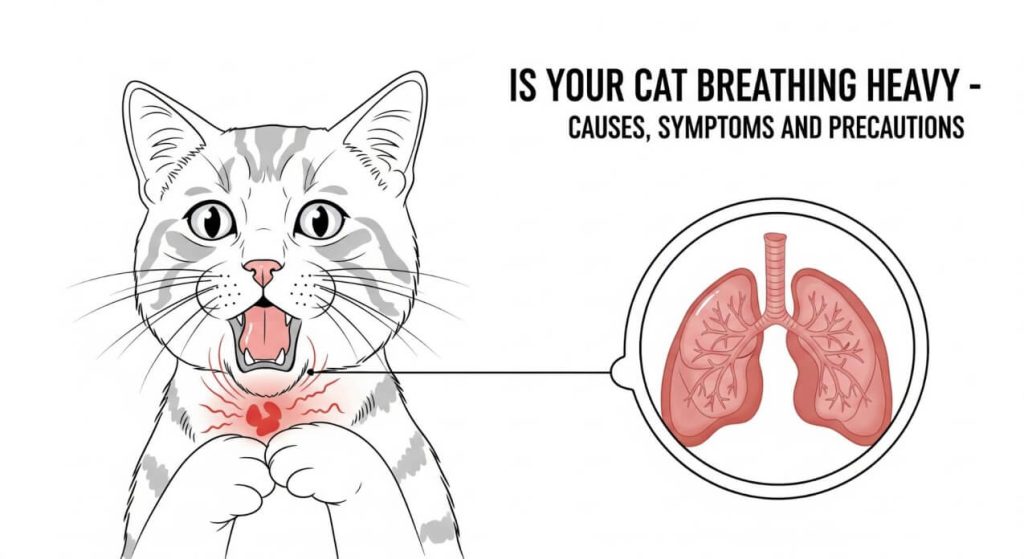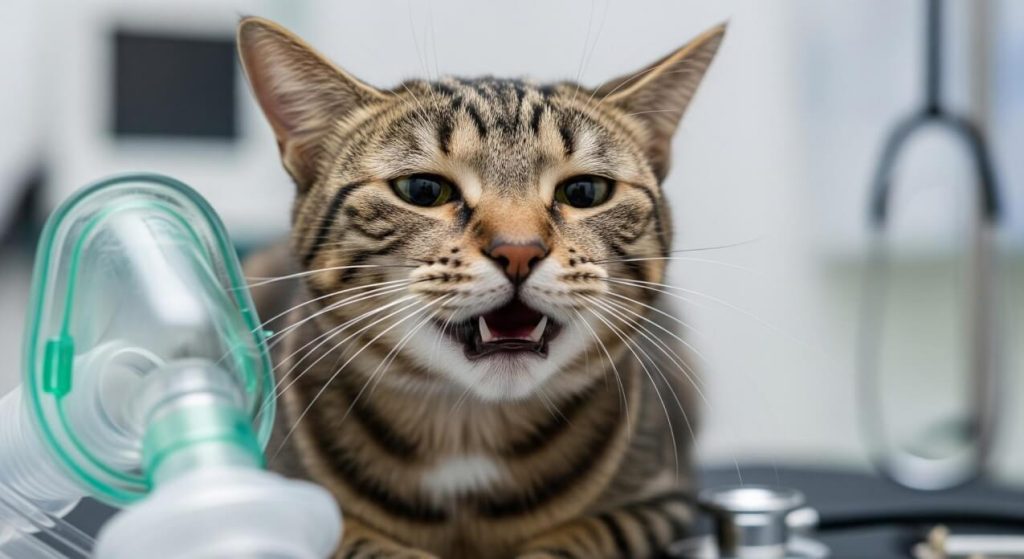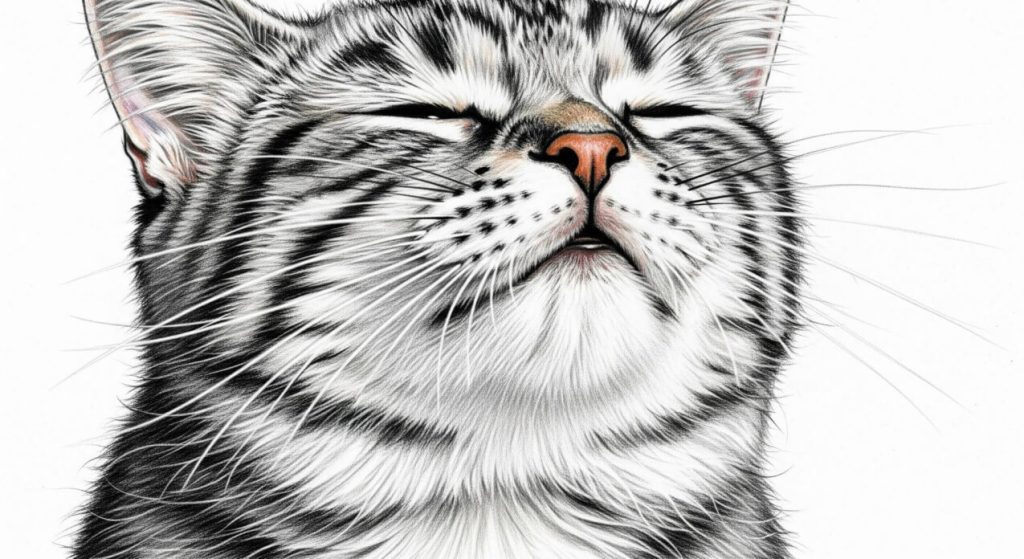
Cats are beloved companions. They are popular for their grace and independence. A cat’s good health is extremely important for it to be cheerful and playful. However, diseases do attack, and a cat’s heavy breathing can be alarming for a pet owner.
Respiratory issues are common in feline companions. These rank higher in terms of health problems among pets that require the immediate attention of experienced veterinary professionals. Research also shows that 10% of cats’ visits to vets are due to respiratory ailments.
Veterinary practitioners & vet techs must understand signs of heavy breathing and possible causes for cats, such as abdominal breathing.
What is Abdominal Breathing in Cats?
Abdominal breathing in cats revolves around the rise of the cat’s abdomen during breathing, followed by a prominent fall.
This indicates that the cat suffering from breathing issues is using the abdominal muscles rather than the pectoral muscles to breathe.
This way of breathing is usually more apparent and could indicate respiratory distress.
Key Facts and Figures
- Prevalence
During its entire life, a respiratory problem can be experienced by just about one cat in every ten.
- Common Causes
The most common causes may include feline asthma, pleural effusion, cardiac diseases, and respiratory inflammation.
- Urgency
Veterinary experts recommend an urgent intervention if a cat exhibits labored breathing.
Causes of Heavy Breathing in Cats:
It is crucial to look for underlying issues to treat them correctly.
The following are some of the major causes of heavy breathing:
Feline Asthma
Around one percent of cats get feline asthma in their life. It is also considered a life-lasting disease in cats.
Coughing, wheezing, and labored breathing are a few of the symptoms.
Cardiac diseases
Pulmonary edema, when fluid accumulates in or around the lungs, makes breathing difficult for cats, can cause cardiac diseases, and lead to heart failure.
Respiratory Inflammation
Cats often have upper respiratory infections.
Cats are often found to have upper respiratory infections. The key symptoms are
sneezing, labored breathing, and a running nose.
Pleural Effusion
Fluid collection in the pleura impedes lung expansion, causing difficulty breathing.
Medical assistance should be sought immediately.
Symptoms of Dyspnea in Cats:

Dyspnea, also known as shortness of breath, is a serious condition that requires immediate medical attention.
Scanning for these signs can help you with a timely diagnosis.
Cat Breathing Heavily While Resting
If you observe your cat breathing irregularly or suffering from shortness of breath while resting, you should take it to a vet. An upset breathing or shortness without any physical activity is the sign that might indicate dyspnea.
This mostly indicates a major underlying illness.
Why Cat Breath Fast?
Other than shortness of breath, the cat could be breathing fast. Do not ignore this sign, too, as this could also indicate a medical condition known as tachypnea. This is when there is rapid breathing, and it is alarming that the cat could be vulnerable to respiratory issues.
Why Is My Cat Breathing Hard Through Her Nose?

This sign can also help to make you vigilant. Nasal obstructions in cats are also called polyps or foreign bodies, and they make cats breathe hard through their noses.
This symptom is often associated with upper respiratory infections.
When to Seek Veterinary Care
Seeking an immediate veterinary attention gets inevitable, if you observe any of the below mentioned signs in your cat.
- Open-mouth breathing
- Blue or pale gums
- Coughing or wheezing
- Lethargy or reluctance to move
- Extended neck or unusual posture to aid breathing
Treatment Options for Cats with Breathing Difficulties:

The treatment for your cat’s breathing heavily depends on the underlying cause; otherwise, the disease can hit again shortly.
Medications
Drugs such as corticosteroids or antibiotics are commonly used to treat feline asthma in cats. The respiratory ailments also get addressed with this medicine.
Oxygen Therapy
Oxygen therapy is a veterinarian’s best bet if the cat has serious saturation problems or chest congestion.
Surgery
Surgery can be significant in cases of pleural effusion or cardiac congestion. The surgical intervention is conducted to extract excessive fluid from the body.
Preventative Measures:
As they say prevention is better than cure so taking certain precautionary measures in advance and opting for healthy lifestyle changes for your pet can make her and you suffer less. Taking the following measures can minimize the risk of respiratory blockages.
Regular Veterinary Check-ups
Many pet parents feel reluctant to take their pet to the vet, whereas a once-in-a-while examination of the cat and animals is as critical as humans. Seeking veterinary guidance helps you scan the cat for initial signs of health problems before becoming fatal.
Maintain a Clean Environment
You can not avoid dust and allergens at your place. However, a regular session of dusting and checking for airborne irritants can contribute to a healthy environment for your kitten and you.
Monitor Weight
When your cat gains weight, their respiratory problems may become worse.
A healthy diet and regular physical activity are recommended for keeping cats healthy.
In Short!
Prompt recognition and management of heavy breathing in cats are crucial for their health and quality of life.
If you are able to get the early signs, this can help you with a timely diagnosis and effective treatment.
However, if you fail to observe a vital sign, you should never ignore even a minor breathing issue and take the cat to a veterinary health expert.
This is why people are encouraged to seek early medical help; it gently aids doctors in developing the right remedy.
If your cat is breathing heavily or has any other respiratory symptoms, immediately make an appointment with the expert veterinarians. And for those entering the field, a solid foundation in veterinary education is essential to address such conditions effectively.
FAQs
Why is my cat breathing heavy?
Certain aspects of the behavior and other signs must be considered if your cat is panting. See a veterinarian immediately if your cat is also gasping for breath with its mouth slightly open or is sleepy.
Can stress make my cat pant?
Stress affects cats, too. It leads to temporary heavy breathing and can turn fatal if not examined in a timely manner. If the issue persists, it is always recommended to take the cat to the vet to rule out the danger and possibility of serious illness.
Is abdominal breathing always a sign of illness in cats?
Changes in breathing patterns are primarily due to respiratory issues and indicate cat illness. So, it is always advised to take pets to a veterinary specialist to clear any doubts and ensure good health.


0 Comments